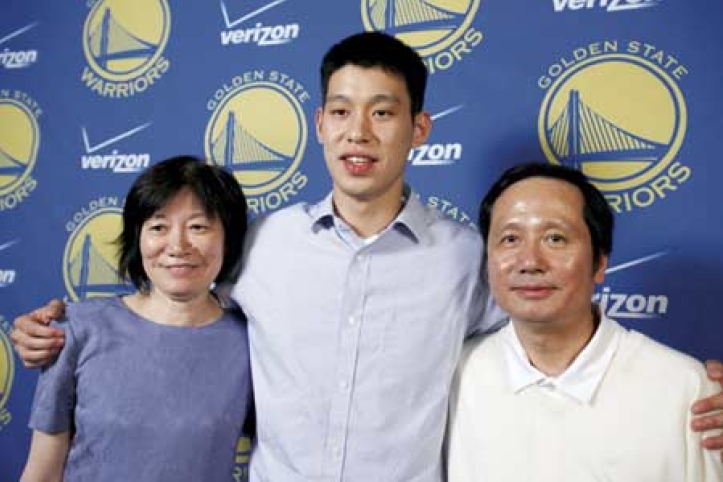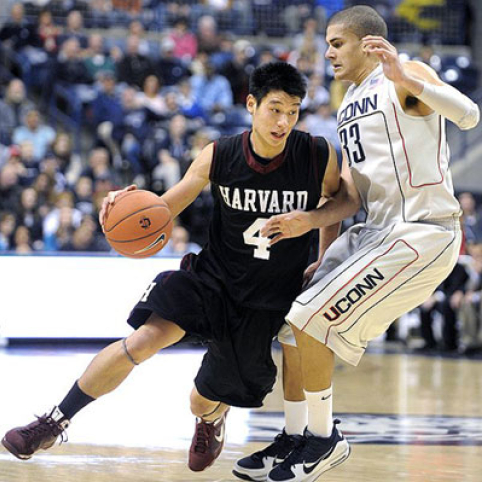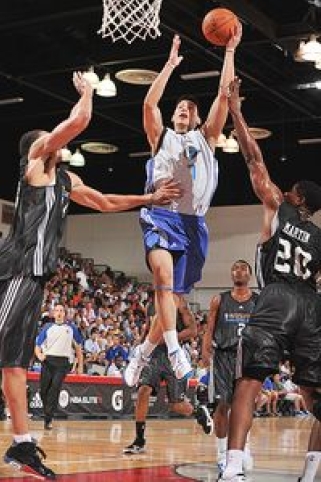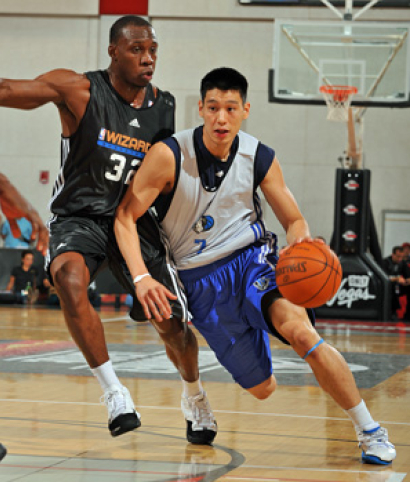Born and raised in San Francisco, Bay Area, Calif., Jeremy Lin, a Harvard Economics grad and a Christian, was drafted by the Golden State Warriors on July 21, making him the first Chinese-American to sign contract with the NBA.
Lin, 21, has led his team at the Palo Alto High School to state championships in his senior year in 2006, and was profiled by all media groups in California as the Most Valuable Player of the Year (MVP).
However, none of the National Collegiate Athletics Associations (NCAA) Division I (D-1) Universities offered him scholarship; NCAA records revealed that the percentage of Chinese players represents only 0.4%. Then, Harvard University opened up a way for him - although Harvard University don’t provide scholarships to its athletes as their normal practice, playing for them would allow Lin to compete in NCAA D-1 tournaments.
While paying for his own tuition, he has become the first player in Ivy League history to record 1,450 points, 450 rebounds, 400 assists and 200 steals.
From an objective standpoint, Lin, an Asian-American and playing for an Ivy League, had really slim chances of getting drafted by the NBA. Yet, he made the cut at the NBA draft on June 24. It was because of his love for the game, he made up his mind to play basketball as a career, which was supported fully by his family, and he kept going at it.
Then, he was offered to play for Dallas Mavericks in the NBA summer league, when the scouts were stunned by his exceptional performance. Prior to signing the contract with his favorite team since he was a child, Golden State Warriors, he was offered to play for Dallas Mavericks and the Los Angeles Lakers.
Raised in a pious Christian home, Lin testified in an interview with media of how he and his family supported each other by relying on faith during these key moments that ultimately will determine his lifetime profession. According to reports, he chose the number seven for his Warriors jersey, for it is God’s number.
In the U.S. basketball world, African-Americans and White-Americans represent the majority of the players. Despite Lin’s exceptional performances on the courts in the last years, there are some who still holds a certain prejudice against him, including insults and ridicules. Ever since 2009, the media have given him more attention, which ESPN, Sports Illustrated, Times Magazine, and other have interviewed him and his family.
In an interview with Patheos, a religious social-networking website, he said, “When the media attention was starting to grow around me, I felt as though I had to play well just to please everyone else. It was a great burden, and it took the joy out of the game for me. See, the truth is that I can’t even play for myself. The right way to play is not for others and not for myself, but for God.”
“I still don't fully understand what that means; I struggle with these things every game, every day. I'm still learning to be selfless and submit myself to God and give the game up to Him. It's a challenge, but thankfully I'm learning more and more,” said Lin, the recipient of Bob Cousy award, given annually to the nation’s most effective point guard.
Lin was inspired by his father Gie-Ming in the love of basketball. Before he emigrated to the U.S. in the 1970s, Gie-Ming has already been a fan of NBA – he would dig through the Taiwanese television for highlights of NBA games. Once in the States, he studied Larry Bird, Kareem Abdul-Jabbar and the classic Los Angeles Lakers–Boston Celtics games from the 1980s.
By the time Jeremy was 5, Gie-Ming was taking him to the local YMCA in Palo Alto, Calif., to play ball in a kids' league, which he enjoyed, for it was when he could spent time with his son and at the same time raise his son’s interest in basketball.
Lin’s life of faith has also had much influence from his parents. Ever since he was a kid, he has been attending church with them, but it wasn’t until his freshman year in high school did he really understood the meaning of the gospel, when he began to prepare his life to be used by God.
In an interview, he mentioned that that although his parents have been constantly reminding him that “playing basketball is to glorify God”, he has never quite understood how that works; however, it was in his senior year in high school and in college did God teach him step by step on how to practice his faith in his basketball career.
Being a Christian isn’t easy on the basketball courts, he said, for today’s world of basketball makes you really different, because the things that society values aren’t necessarily in line with what God values. He felt that the most important attitude of a Christian basketball player is humility.
“Society focuses so much on individual stats and wins and losses. To a certain extent, you can control those things. But to play for God means to leave the records and the statistics up to Him and give your best effort and allow God to figure out whether you win or lose, whether you play or shoot the ball well that game. So I just try to make sure that I work hard and in a godly way. I prepare myself as well as I can, and at every point during the game I try to submit myself to God and let Him use me,” he said, “and if we really understand the gospel, we will be humble. We should be humble, and understand that everything that is good comes from God.”
Lin confessed that he also had his ways of the youth, having been naturally competitive and cocky and wanted to prove people wrong. Whenever he heard others look down or insult him, he always wanted to say something back or to play well to get back at them. But as he grew older, he realized that he shouldn’t let those things affect him nor should he retaliate.
“We are also called to turn the other cheek and love our enemies. There are times on the basketball court when people will say things to you, and you just have to bite your tongue and love them. It's almost as though you have to love then even more, and that love means more if they're wronged you,” he said.
On the other hand, when asked about if God has used basketball to shape his faith, character, personality, Lin replied, “Absolutely.” With his experiences, he said that it is hard not to trust God and know that he has a perfect plan for him. Also, he has been humbled greatly, for the more that he plays the more that he realize that the outcome is less up to him, and there’s less that he can control.
“There are times when I'm out there on the basketball court and it feels like I'm not even controlling my own body. It's almost as though someone else is using me as a puppet. There are things I do, that, when I look at them afterwards, I wonder how I did that. In moments like that, I realize that there is something more to what's happening around me, something supernatural about it,” he said.
Since his rise to fame, one of the major the focuses of the public is his identity as the first Asian-American to be drafted by the NBA, and some even expect that his achievement will break the stereotypes. In response, Lin said that he is not worried about this, “I’m not playing for others, my audience is God”; at the same time, he believes that he has a “duty to be a Godly role model” towards those youth who will look up to him and carry himself in a way that reflects God’s image.
Throughout his basketball career, the Christian churches have been supporting and praying for him. Towards this, he expressed his deep gratitude, which has also been a factor that keeps him focused on God. In an interview with Times magazine last year, he spoke of becoming a pastor, “I’ve never really preached before,” Lin said. “But I’m really passionate about Christianity and helping others. There’s a beauty in seeing people change their lifestyle for the better.”
Rev. Steve Chen, Lin’s mentor and pastor of Mountain View, Calif., church the Lin family attends, said, “I can definitely see him being in ministry, but right now, God has gifted him in a specific way, and he’s going to go after it hard.”
To read more, visit The Faith and Fate of Jeremy Lin
[Editor's note: reporter Eunice Or contributed to this report.]











